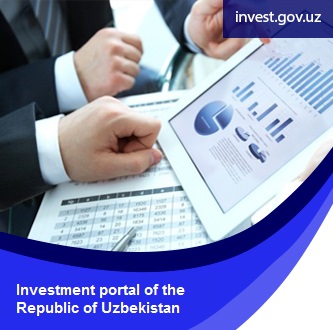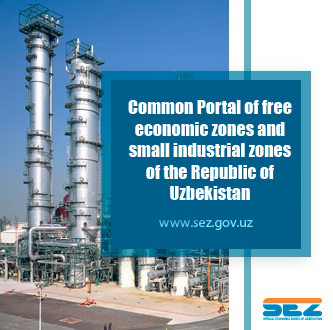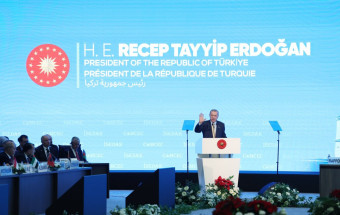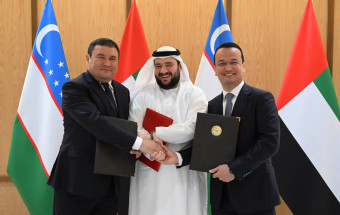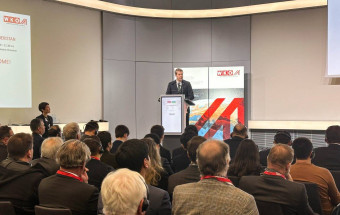The Ministry of Investment and Foreign Trade held briefing on investment and foreign trade activities
On January 12 this year, the Ministry of Investment and Foreign Trade of the Republic of Uzbekistan held a briefing in the form of an open dialogue dedicated to the analysis of the results of investment and foreign trade of the Republic in 2020 and a discussion of priority goals for 2021.
Deputy Prime Minister - Minister of Investment and Foreign Trade of the Republic of Uzbekistan S. Umurzakov, Deputy Ministers of Investment and Foreign Trade, top officials of the Ministry of Foreign Affairs, commercial banks and other departments, as well as representatives of the media and the public attended.
The meeting provided an open conversation, where the attendees were able to comprehensively discuss a wide range of relevant topics with a view to results achieved.
In particular, they said that according to the results of the past year, there was large-scale work done in the investment and foreign trade. According to preliminary estimates, at the end of 2020, foreign direct investment in fixed assets amounted to USD 6.6 billion, with a growth rate of 101.5% compared to the same period in 2019. The Investment Program provided an implementation of 197 projects, which created 38 thousand jobs. Besides, regional investment programs provided implementation of 10,586 projects totaling USD 59.1 trillion, which created 131.5 thousand new jobs.
The attendees also considered the results of foreign trade activity. They said that the exports amounted to USD 15.1 billion by the end of 2020. At the same time, there were developed new export supplies of 47 types of new products and new promising markets in a number of countries.
The attendees noted that timely state support to overcome the negative impact of the pandemic on the economy of the Republic and the partner countries played an important role in achieving these results. One of the supporting measures was the creation of a Government Commission on Export and Investment Development involving key ministries, departments, and government authorities, whose goals were to work closely with entrepreneurs and exporters, analyze the problems they faced due to pandemic restrictions, as well as the development and implementation of operational and effective solutions based on an individual approach to each business entity. The field work of the members of the Commission at the end of last year resulted in targeted consideration of operation of more than 98 thousand enterprises, identification of 6,235 pressing concerns of 5,902 enterprises. Each of them was addressed in close cooperation of the relevant ministries, departments, commercial banks, local authorities and diplomatic missions of the Republic abroad.
In addition, the Commission's goals also included the development of systemic mechanisms aimed at improving the conditions for business and practical and financial support to initiators of investment projects and exporters. One of the solutions provided the adoption of a pre-export financing mechanism using modern trade finance instruments. There also was a procedure to provide guarantees for up to 50 percent of the amount of loans issued to exporters in order to replenish working capital.
During the briefing, the top officials of the Ministry shared plans for the coming year. They disclosed in detail near, medium, and long-term priority tasks, new principles, and mechanisms of work, and described expected indicators of investment and foreign trade activity in 2021.
According to the forecast, foreign investment will amount to USD 10.5 billion, of which USD 7.6 billion will be foreign direct investment, and 226 large and industrial projects of high economic importance will be put into operation, which will create 34 thousand new jobs.
Regional investment programs intend to develop UZS 94.8 trillion and commission 7,106 investment projects, which will result in about 162 thousand new jobs.
Here, the attendees announced that this year provides the study of structure of imports of the Republic, the CIS countries, Central and South Asia, Turkey, South Korea and China, as well as a detailed analysis of the investment and industrial potential of industries and regions. The comparison of these indicators will provide the new approach to the development of investment proposals and high economic effect from the implementation of these projects.
The attendees also mentioned, that in 2021, the expected export would be more than USD 17 billion. This will result from the significant increase in export supplies in such areas as agriculture, textile, silkworm breeding and electrical engineering, etc. At the same time, it is planned to involve more than 2 thousand new enterprises in export and establish the export of 120 new types of finished products.
They talked about the new mechanisms of work for practical support to entrepreneurs and exporters, which is planned for 2021. In particular, they talked about the system of daily monitoring of the investment projects and the creation of a system of weekly reporting on their progress with a view to industries and regions. The deputy ministers of investment and foreign trade, heads of relevant sectoral departments and bodies, local authorities will be personally responsible for their timely commissioning.
The briefing provided a Q and A session, where the attendees were able to obtain comprehensive information on points of interest related to the development and prospects of trade and economic cooperation with foreign countries, interaction with international financial institutions and development partners, support of foreign investors, and measures taken to stimulate economic growth in the post-Covid period, as well as the implementation of social and infrastructure projects.
Media representatives put a particular attention to the work carried out by the Ministry in cooperation with other departments, state bodies and commercial banks to stimulate the social and economic growth of regions, including methods to identify 'points of economic growth', a system of interaction with local authorities in districts and cities, as well as the format of cooperation here with the chairmen of makhallas.
After the briefing, the attendees agreed on the need to hold such events on a regular basis. They emphasized that a constant and open dialogue between government bodies and the media was an effective tool for timely identification of urgent problems, their comprehensive discussion and development of promising solutions. The conversation, which ended on a confidential note, strengthened the willingness of the attendees to further actively cooperate and interact.



